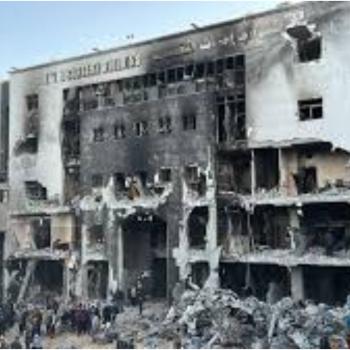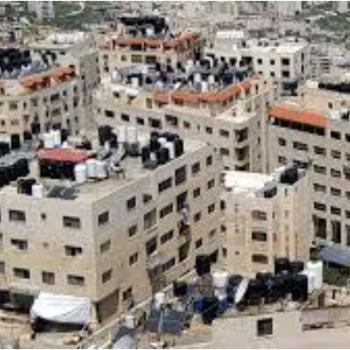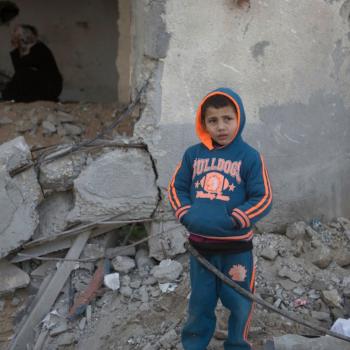
I regularly hear that Israel has no choice but to wipe out Hamas because they cannot make peace with those who are not willing to make peace with them. Is it true that there is no hope for peace because although Israel is willing to make peace with the Palestinians, Hamas has no objective except to destroy Israel?
When we first came to learn of Hamas’ horrific deeds on Oct 7 and we saw the videos and pictures of their killing and the capturing of more than 200 civilian hostages, we were justifiably angered and grieved. Although virtually everyone condemns the attack, many, including myself, tried to bring to the surface the fact that this attack did not happen in a vacuum.
That is, contrary to popular conceptions, Hamas didn’t attack Israeli civilians simply because they could. They didn’t carry out their treacherous deeds simply because they have a deep-seated hatred of the Jewish people and want to see them annihilated. Now, I don’t intend to justify Hamas, nor to deny that they want to see the nation of Israel destroyed, nor that Hamas does have a genuine deep-seated hatred of the Jewish people. The point is that Hamas claims that their acts of violence against civilians in Israel were motivated by several factors.
First, they pointed to the continuous incursion of Israeli settlements in the West Bank. Israel’s continuous expansion of settlements in the West Bank and its confiscation of Palestinian lands speaks loudly that Israel does not appear to be interested in peace with the Palestinians either.
A second and related fact that Hamas has pointed to is the fact that the Israeli courts universally refuse to punish settlers who commit acts of terror against the Palestinians.
Third, Hamas claimed that it was also motivated by the illegal detaining of Palestinians in Israeli prisons.
Now the first two points suggest that Israel is not interested in making peace with the Palestinians. Israel’s growing settler movement even suggests that Israel’s motivation is to gain control of all the land.
It is the third point, however, that I would like to contend also demonstrates that those in power in Israel do not intend to pursue peace with the Palestinians.
Prisoners for Hostages
I must admit that when I first heard of the demand for Israel to release Palestinian prisoners it seemed like an unjust request. After all, we know that the hostages that Hamas has are innocent civilians.
NB: This understanding is regularly reinforced by the media’s consistent use of, and rightly so, the term “hostages.” The media has also released photos of some of the hostages and circulated accounts revealing their identities and their stories. It is evident that the hostages are common people just trying to live their lives and raise families or go to school.
The reason that Hamas’ request appears unjust, however, is because A) it is coming from Hamas and we all know they are pure evil and cannot act justly; and B) they are requesting “prisoners” to be released.
Although some media outlets refer to the Palestinians as “detainees,” they are nonetheless commonly referred to as “prisoners.” The demand for “prisoners,” or “detainees,” for “hostages” hardly seems just.
But is their request unjust?
After all, if it were unjust, why would Israel agree to such an exchange? Does not agreeing to such an exchange send a message to Hamas that if they capture Israeli civilians, they can always negotiate a swap of Palestinian prisoners in return?
The fact is, however, that the Palestinians whom Hamas is demanding in exchange for the hostages are not prisoners in the proper sense of the term. What I mean by this is that they have not committed any crimes.
What is not regularly known by many in the West is that Israel regularly detains Palestinians in Israeli prisons. These “detainees” are often kept for months and even years without ever having a charge leveled against them.
So, yes, they are kept in prisons. But they are not prisoners because they have not committed, nor are they even being accused of having committed a crime.
In my livestream with Jonathan Kuttab, a Palestinian lawyer, I asked him if he represents any of these detainees. He replied that he could not represent or defend them in court when they had not been charged with anything.
This leads me to ask, “What is the difference between Israeli ‘hostages’ and Palestinian ‘detainees’?”
Now, one might respond to my query and claim that the Palestinian “detainees” are detained because they pose a threat to Israel’s security or because they are suspected of having committed a crime. Whereas, the “hostages” are innocent civilians.
The fact, however, is that many of the “detainees,” both now and over the last 56 years (this has been a regular component of the Israeli occupation. In fact, Francesca Albanese, the UN special rapporteur for the occupied Palestinian territories, reports that since 1967 Israel has “detained” over 1 million Palestinians) are also innocent civilians.
In fact, last week I learned that Anas Abu Srour was arrested (“detained”). Anas is the director of the Aida Youth Center in Bethlehem and is a friend of David Crump (whom I interviewed on my livestream on Nov 14 ). Professor Crump says this about Anas and his work, “As the Center’s director, Anas is committed to providing educational opportunities and improving the lives of the many children growing up inside a refugee camp on the outskirts of Bethlehem.” Surely, Anas has not committed any crime except for the fact that he is Palestinian. Yes, he has been “detained.” But is he not just as much a hostage as the 250+ hostages that Hamas captured on Oct 7?
The fact that the Israeli military routinely detains thousands of Palestinians for 6-9 months or more without ever charging them with a crime is equally unjustifiable and damnable. Calling these Palestinians “prisoners” or even using the somewhat softer designation “detainees” doesn’t do complete justice. Why should they not also be called “hostages”?
By all measures, the Palestinians are also hostages (see Webster’s definition of “hostage”).
There are, in fact, currently more than 7,200 Palestinians in Israeli prisons. Of the roughly 7,200 Palestinian “detainees” 88 of them are women and 250 are children (17 and under).
This means that Hamas is asking for an exchange of innocent civilians who have not committed nor even been accused of a crime in exchange for innocent civilians.
Do those in power want peace?
The claim that Hamas does not want peace with Israel is understandable. Though much can be said of the fact that I know of many Palestinians who affirm that if Israel would agree to bring justice to the Palestinians, then they (the Palestinians) would take care of Hamas.
But do those in power in Israel really want peace with the Palestinians? The fact that Israel continues to “detain” Palestinians at an alarming rate is one of several reasons to suppose that they do not.
The number of Palestinian “detainees/hostages” before the war was approximately 5,200. But there are now 7,200 detainees. This means that since the war started a little less than 2 months ago an additional 2,000 Palestinians have been “detained.”
But if one of the motivations for Hamas’ acts of terror on Oct 7 was the presence of thousands of Palestinians who have been taken as “hostages” (for that is what they are) by Israel, then it seems as though Israel continues to act in ways that betray a desire for peace.
What does all this mean?
- When we see an exchange of “hostages” for “prisoners” we should realize that this is an even exchange: civilian captives for civilian captives.
- Even though the number of Palestinian “detainees” that were released during the recent cease-fire has been greater than the number of Israeli hostages that were freed, this “unequal” exchange is equitable because Israel has vastly more “detainees” than Hamas has hostages.
- The number of Palestinian “detainees” is growing despite the release of “detainees” for hostages.
- If one of the motivations for Hamas’ heinous acts was the unjust detaining of Palestinian civilians, then will not the fact that Israel has “detained” more than 2,000 Palestinians since Oct 7 only lead to another Oct 7?
Our goal is to keep these posts free of charge. I do not intend to ever hide them behind a paywall. I can only do this if those of you who have been blessed by them and can afford to give ($5, $10, $25, or more/month) do so. You can give a tax-deductible contribution by following this link.
Please share this post and let others know about determinetruth.
If you wish to view this blog on your smartphone through the Determinetruth app simply download the “tithe.ly church” app on your smartphone and insert “determinetruth” as the church name you wish to follow. Once it is loaded, simply click on the “blog” icon and it will automatically load.
If you would like to have Rob speak at your church or organization in person or via Zoom, please let us know by filling out the contact info on the Contact me tab on this site.
















